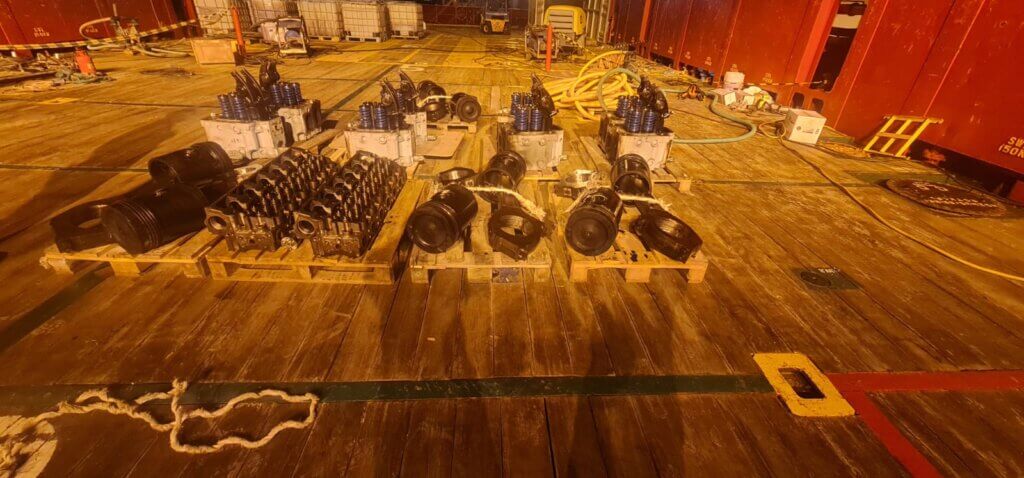Deutz Italy has won its umpteenth bet, completing the total overhaul process of one of the two Niigata 8L28HX main engines, in just 20 days of work. Now the goal is to work on the second engine as well, involving a team of 6 technicians, ready to focus on multiple tasks.
Deutz Italy Service takes care of the complete disassembly of the upper part of the engine, but also of the on-site overhaul of complete cylinder heads. Then, it moves on to checking the injectors, injection pumps, pistons, liners, connecting rods, air/water exchanger and the water and oil pumps. Finally, the replacement of all components subject to wear, such as the main bearings and all the timing gears, cannot be missing.
Why is the overhaul process so important?
The overhaul process of a nautical engine is one of the most important pages for respecting the maintenance of a boat, regardless of the model and type. In most cases it’s always advisable to carry out an initial annual inspection on any type of engine to make sure that the parts and components of each engine have been replaced or are working properly.
Working on the first Niigata 8L28HX engine, which had reached its limit hours (about 30,000), Deutz Italy Service has completed the standard maintenance program, replacing all components subject to wear, to bring the engine back to its original characteristics and performance.


As far as the first engine is concerned, what has been obtained at the end of the process is the restoration of an engine that is commonly used in the marine sector (supply vessels, tugs) as a main engine, or an engine for electricity generation. In terrestrial environments they are used, combined with alternators, as electricity generators.
Considering the use
All boats that have offered their service for many hours, and therefore are subjected to intense journeys (for the total hours of navigation), must be checked with the correct frequency. The components, in fact, tend to wear out more and more easily.
But this concept should also be extended to boats that remain stationary for a long time: they will have to undergo maintenance, as the various dirt deposits can cause other problems during operation. Let’s think, for example, of the stiffening of rubber parts which play a key role.
What about the second Niigata 8L28HX engine?
Deutz Italy’s intention is to repeat the success obtained with the overhaul of the first engine to maximize the performance of the second Niigata 8L28HX engine. Approximately 3 months have passed between the overhaul of the first and second engine, and it’s now possible to intervene to bring the engine back to “new”, with optimal characteristics and performance.
But to understand what the final results will be, we will have to wait for the practical opening of the engine itself.
What impact do the other components have on the ship’s performance?

Deutz Italy works to reduce vessel downtime, and costs for the shipowner, by identifying an adequate team of people, with an expert supervisor. The latter is capable of adequately coordinating the works, reducing the so-called “dead times”. And since we have talked about ship downtime, it is appropriate to make a further clarification.
Every day saved is one day less of the ship’s downtime, and it’s one more day of charter/work which brings thousands of Euros into the shipowner’s cash box.
New goals with an eye towards increasingly sustainable navigation
Behind every new activity there is a central objective: to increase the concept of sustainability applied to the nautical sector.
Sailing in a sustainable way means, as in all other areas, energy efficiency and reduction of polluting factors. In the short future we will increasingly switch to Dual Fuel (diesel/gas) and ammonia engines, but for this rich and complex subject there is still a lot of work to do.


